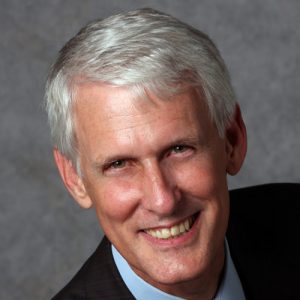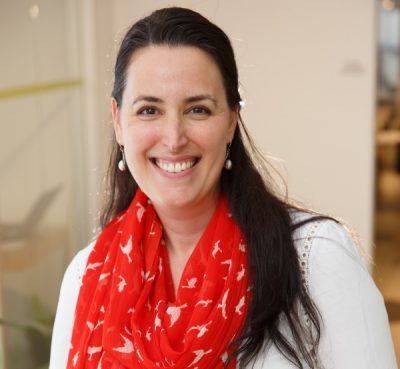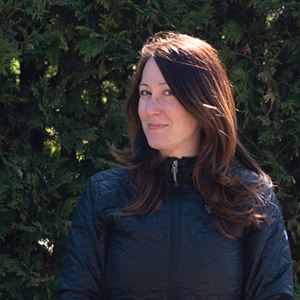What should community-campus engagement (CCE) look like for our students, our communities, and our institutions? This is the question that was posed to several panelists at the June 20, 2018 launch of Community-Campus Engage Canada, an emerging network of community-campus engagement practitioners seeking to share learnings and bolster the field of CCE in Canada.
Below, we share panelists’ visions for the future of CCE in Canada.
A commitment to CCE is our responsibility – Jerry Tomberlin, Interim Provost and Vice-President Academic, Carleton University
 It is a great privilege to welcome you to our beautiful campus and to Ottawa.
It is a great privilege to welcome you to our beautiful campus and to Ottawa.
How fitting to be in Canada’s capital for this day, as we launch a new national effort, ‘Community Campus Engage Canada’, as a network to build and strengthen community-campus partnerships all across this country.
You are here because of course you recognize the value and potential of community-campus engagement. But we must also recognize that this is more than a matter of value: it is a matter of responsibility.
As public institutions, we are charged with preserving, passing forward and generating knowledge. This is our mandate.
But increasingly we understand that knowledge is given not just to individuals, but to the whole of society. And our efforts, our scholarship, is critical to solving our collective challenges and uplifting us all.
Ultimately, we are here to serve the greater good. This is a fundamental value here at Carleton. In some ways, it’s in our DNA, expressed in our ethos—that we are “Here for Good.” It’s a value that we celebrated last year, during the university’s 75th anniversary. We paid tribute to the original founders of Carleton. This was a group of well-meaning residents and local leaders who, in 1942, recognized a need in the city. The founders saw that the young people of Ottawa—those who had moved here to support the war effort, and those who would soon return from serving overseas—deserved a new option for higher education. Not only would this improve the lives of these young people, it would ultimately contribute to a stronger city, a more prosperous economy, a richer cultural and social fabric. And so these founders brought their time, energy and resources together to do something good—to build Carleton College, now University. It was a gift of individual opportunity and a means to serve the greater good.
The spirit of those founders is very present at Carleton to this day. We strive to uphold their vision of doing good things for the community. We teach the value of community service, incorporating it into a growing number of experiential learning opportunities for students.
At last count, over 2500 Carleton students were involved in some type of community-based experiential learning opportunity each year, working in cooperation with a wide range of external partners, whether through thesis research, internships, practicums, undergraduate capstone research projects and more.
We encourage researchers to partner with local organizations and businesses, ensuring their discoveries offer meaningful and enlightening “co-created” knowledge. And we engage graduates, supporters, volunteers and community groups through philanthropy, so that together we might make the world a better place. These principles underscore our ethos and define our responsibility—that in all things we must be Here for Good, in service to our community and a vital part of its future.
And so we are proud to host the launch of Community Campus Engage Canada today. You, like Carleton, are Here for Good—you wish to serve the greater good and build a wiser, more prosperous, more caring world through education. We are honoured that you have come to our campus for this discussion.
And we are honoured that from our campus, and from the success of the Carleton-based CFICE project, there has emerged this new collaborative national effort to strengthen our communities and serve the health and well-being of us all.
CCE will contribute to more civic engagement – Karine Diedrich, Director, Public Engagement and Stakeholder Relations, Volunteer Canada
 It is a pleasure to be here today. Volunteer Canada is proud to provide national leadership and expertise on volunteerism to increase the participation, quality and diversity of volunteer experiences. We collaborate with a network of over 200 local volunteer centres, many of which work closely with post-secondary institutions in their community.
It is a pleasure to be here today. Volunteer Canada is proud to provide national leadership and expertise on volunteerism to increase the participation, quality and diversity of volunteer experiences. We collaborate with a network of over 200 local volunteer centres, many of which work closely with post-secondary institutions in their community.
As we know, community-campus relationships take many forms and involve a wide range of players. Linkages between colleges and universities, and community-based organizations can create benefits for students, professors, researchers, funders, not-for-profit organizations, public agencies, and academic institutions.
It can enhance academic learning, prepare students to become actively engaged in social issues and help expand their network as they prepare to enter the workforce. It can increase the capacity of an organization to achieve its mission, bring theoretical concepts to life and contribute to better programs and policies.
The work of the Community First: Impacts of Community Engagement – or CFICE – research project has helped to identify how community and campus players work together to positively impact their communities, generating a wealth of community-first stories and resources to support equitable partnerships and positive experiences for all the players involved.
It is my hope that the development of the new Community-Campus Engagement in Canada (CCEC) network will facilitate continued learning and sharing of experiences. That it will support community-campus experiences that benefit all players. That the benefits will extend beyond a single research project, academic credit or volunteer experience. That it will contribute to more civic engagement across our institutions and communities, help us better understand our respective realities, challenges and strengths and ultimately lead to strong, connected and vibrant communities across Canada. Thank you.
CCE helps us evolve to meet the demands of a changing landscape – Andrea Dicks, Chief Operating Officer, Community Foundations of Canada
 Good morning. I am delighted to be here on behalf of Community Foundations of Canada.
Good morning. I am delighted to be here on behalf of Community Foundations of Canada.
For those who may be less familiar with CFC…
- We are the national organization for Canada’s 191 community foundations
- 90% of Canadian communities have access to a community foundation.
- And we’re actively working to ensure this number reaches 100%.
- Globally, we are part of a network of nearly 1900 foundations across more than 50 countries.
- Wherever they are, their mission is to find ways to make communities better places to live, work and play.
Just like you, we want our communities to be strong, resilient, inclusive and welcoming.
The communities of tomorrow will be different than those we know today. And we believe, collectively, we have a role to play in shaping and responding to this future.
Some of the ways that Canada is changing that we think about often:
- 81% of Canadians currently live in urban communities
- Domestic fertility levels are below 2.0 – meaning future population growth will come from migration.
- For the first time in Canadian history, we have more seniors over the age of 65 than youth under the age of 15.
- World Economic Forum e stimates that 65% of children today will have careers that don’t currently exist.
If our communities are going to be ready for the future, community philanthropy, post secondary education and others must evolve to meet the demands and opportunities of this landscape. We must also be willing to explore our blind spots, and examine what needs to change in how we think and act.
We dream of a world where there are more solutions than there are barriers.
To us, this means doubling down on our collaborative efforts to break silos, systemic barriers and social norms that have been embedded in our society. It means considering how community philanthropy can help shift the power to create a world more just, inclusive and equitable. It means stepping out to champion the values of pluralism, allyship, diversity, and belonging.
We believe, like you, that Canada holds great potential to build resilient communities. And one of its key superpowers to do so is through increased community-campus engagement.
One of the most fundamental elements to building resilient communities is knowledge: the ability to recognize disruptive change, face challenges and seize emerging opportunities.
Knowledge generation is often viewed as a one-way process: “out of” the academic arena and “into” the community.
The reality – that you in this room know so well – is that communities possess deep knowledge, including its drivers and its impacts. One example is through the Vital Signs program which more than 85 community foundations around the world participate in. If you are not familiar with it, it is a program that leverages local knowledge to measure the vitality of our communities and support action towards improving our collective quality of life.
Deepening two-way relationships between communities and campuses — in which the community is an active participant, stimulating and focusing research and innovation — will generate the resiliency and creativity needed for our communities to navigate the future.
At CFC, we see tremendous potential in community-campus engagement through a number of our initiatives.
- One example, the Queen Elizabeth Scholars program, offers opportunities for students to live and work abroad.
- It will be aligning its future programming with the Sustainable Development Goals, a universal set of goals adopted by every member state of the United Nations.
- The 17 SDGs are a universal call to action to end poverty, protect the planet and ensure that all people enjoy peace and prosperity.
- We’ll be working closely with our community foundations to connect scholars with the community where they are studying, and identifying opportunities to enhance their learning.
Through stronger campus – community connections we are certain that:
We can thoughtfully lay the path for future generations while ensuring that current needs and opportunities are met, and that we leave no one behind.
We can help shift the power and establish more just communities, by taking risks that may disturb our comfort zones;
AND
We can cultivate innovation and opportunity as an outcome of diversity and inclusion not one that stokes the flames of fear as a result of it.
We all have an incredible opportunity to use our leadership and our social capital to build a new narrative and help re-imagine what it means to be a caring community–together. I look forward to continuing the conversation with you. Thank you.